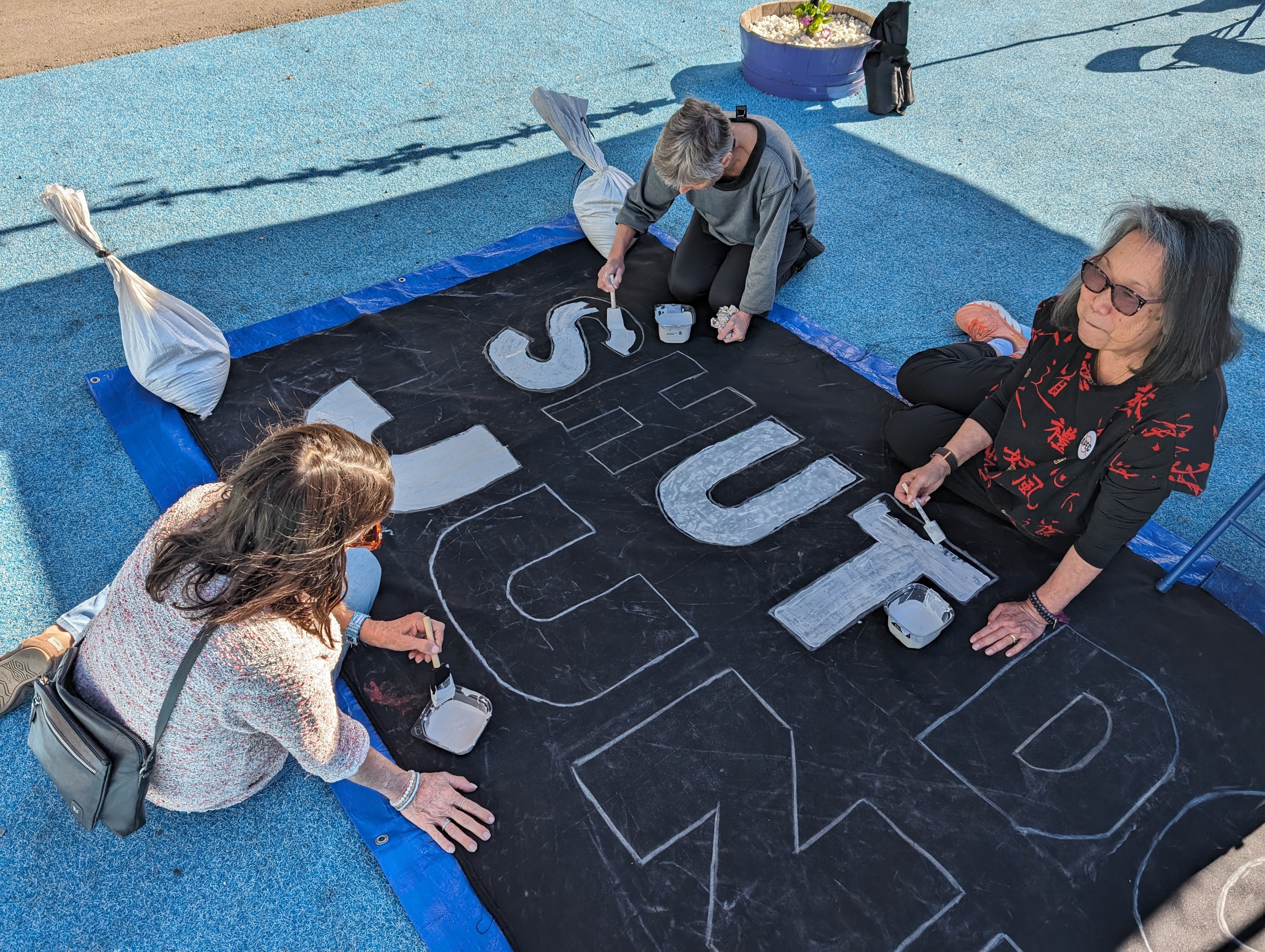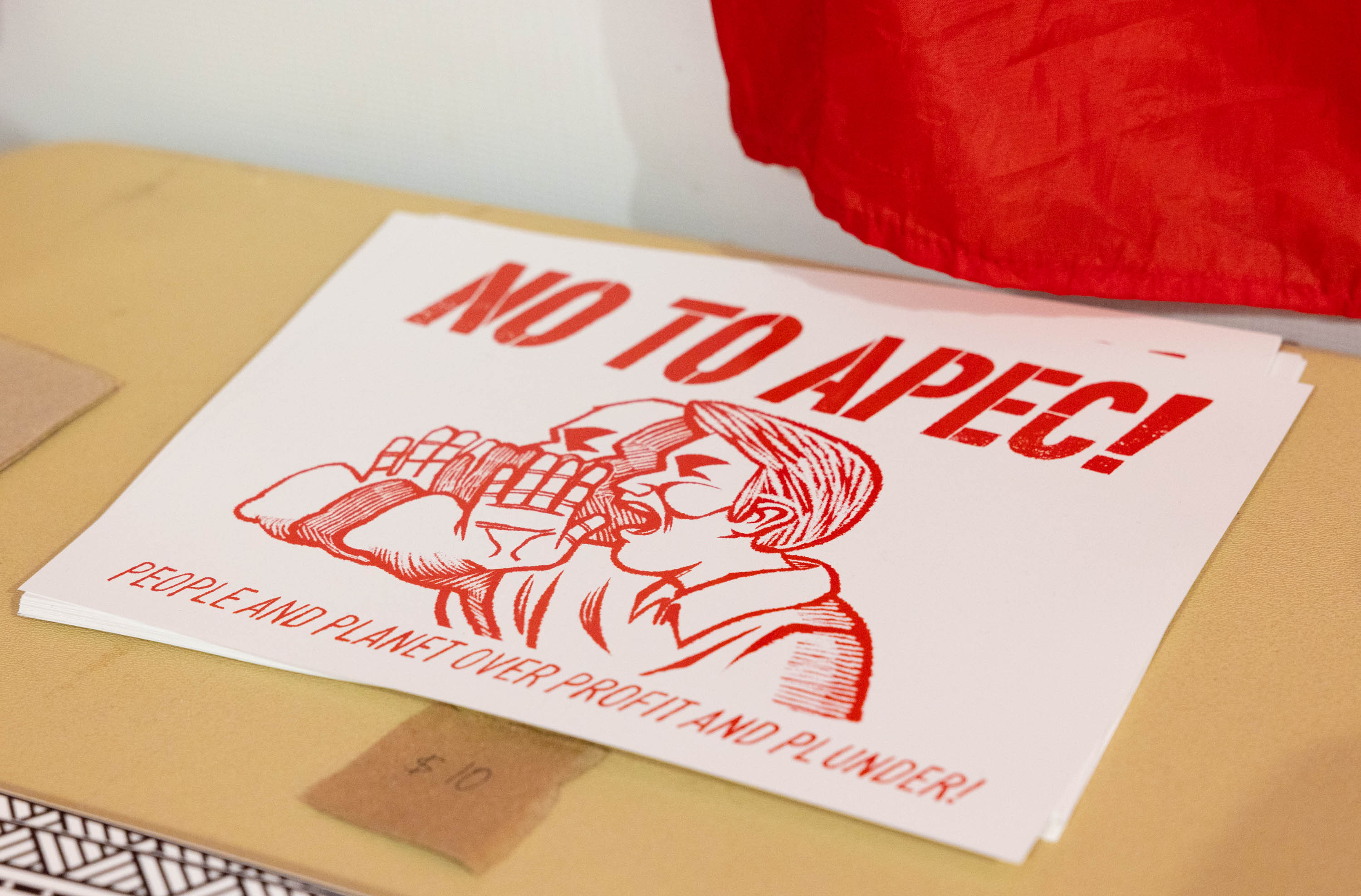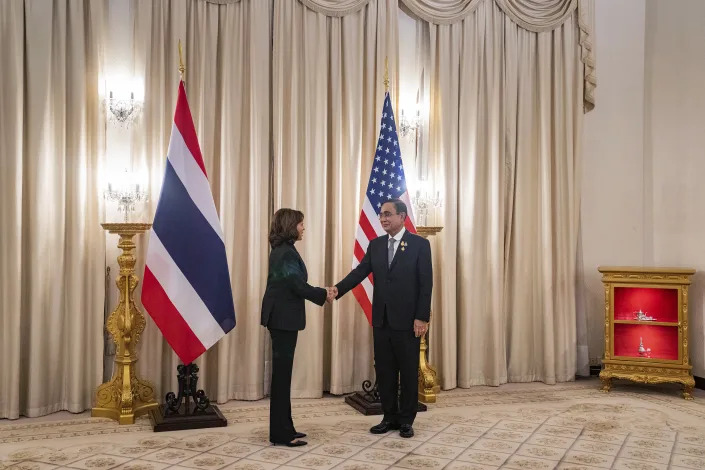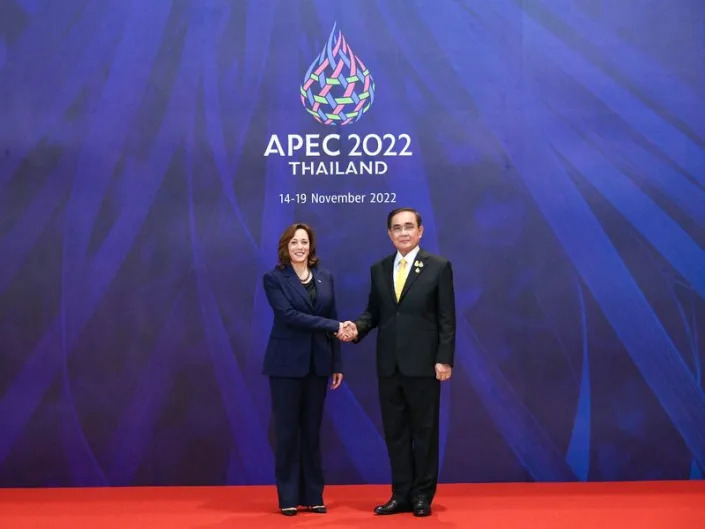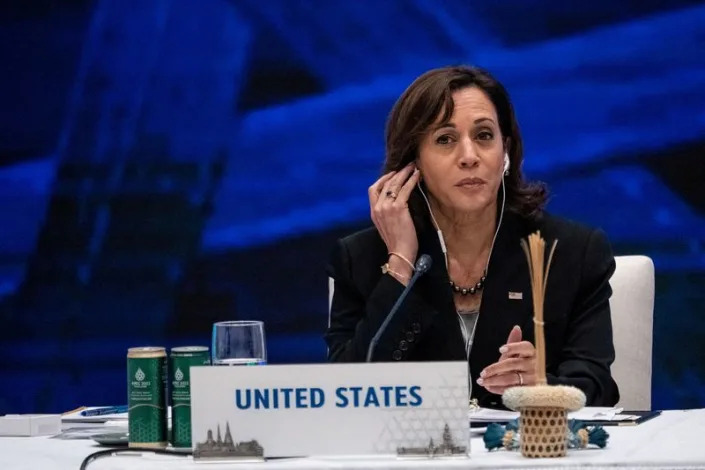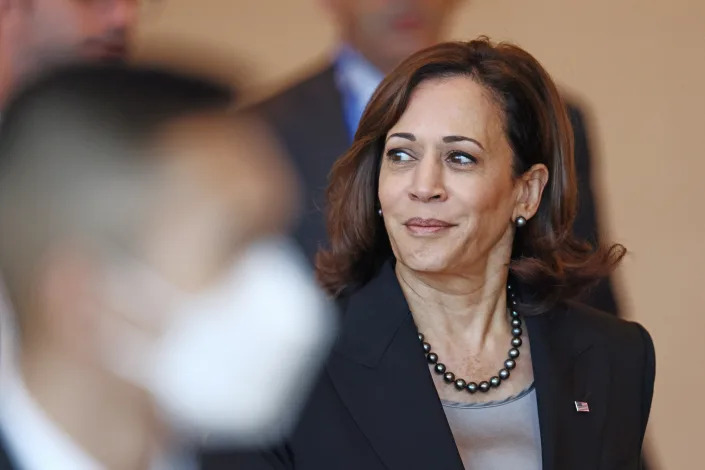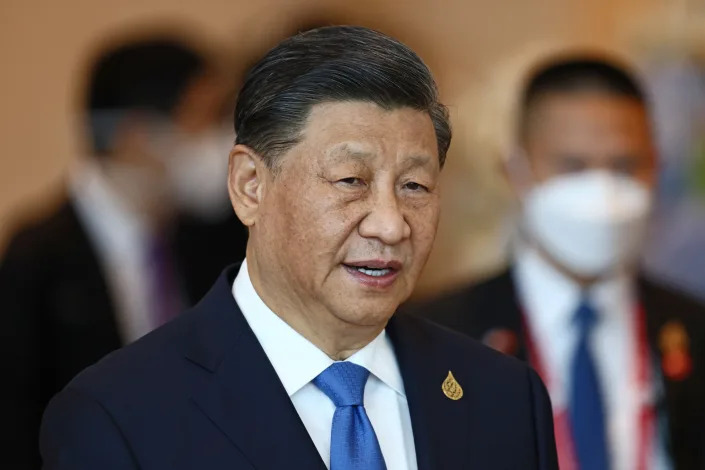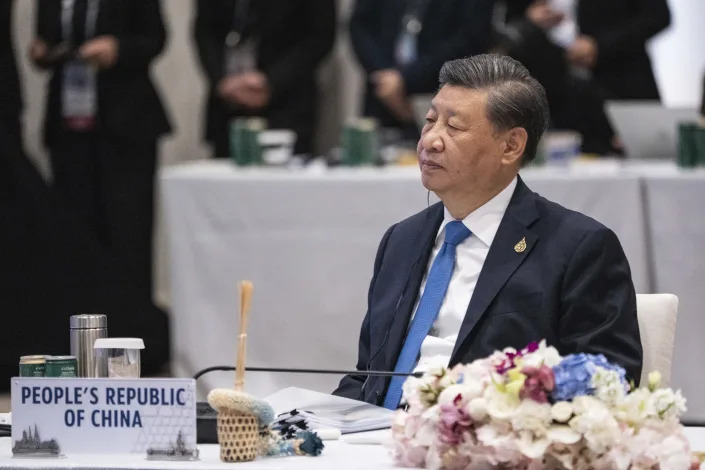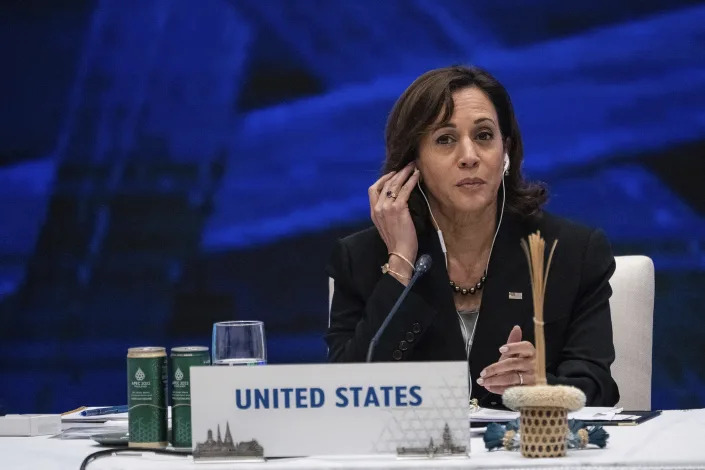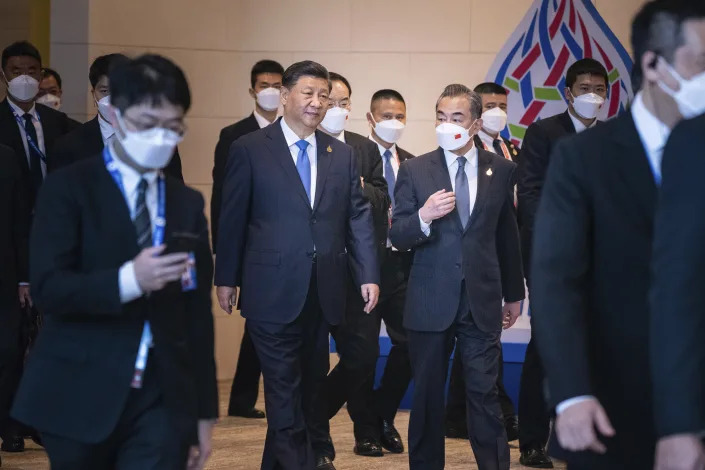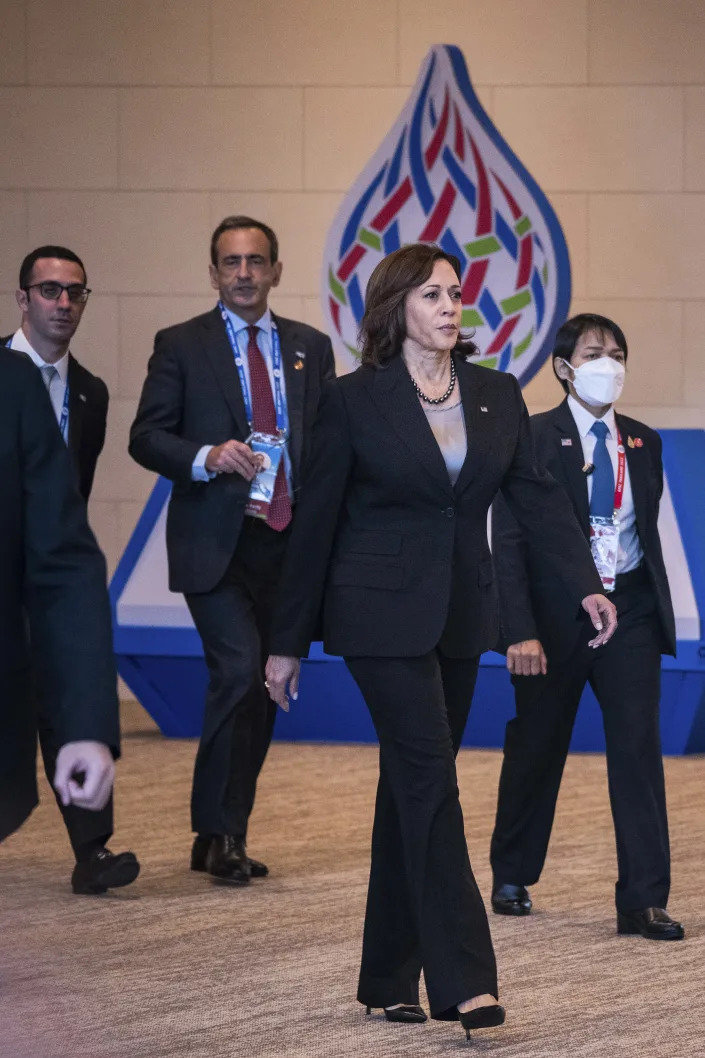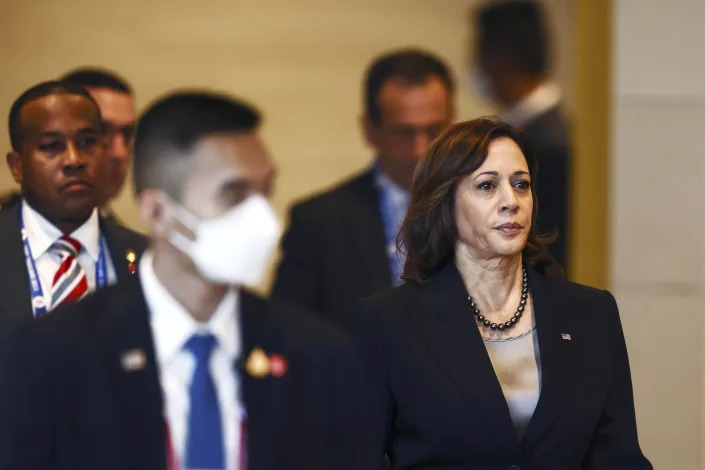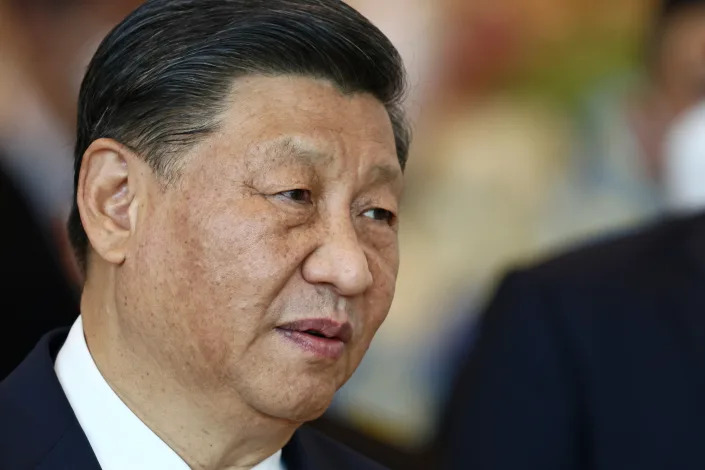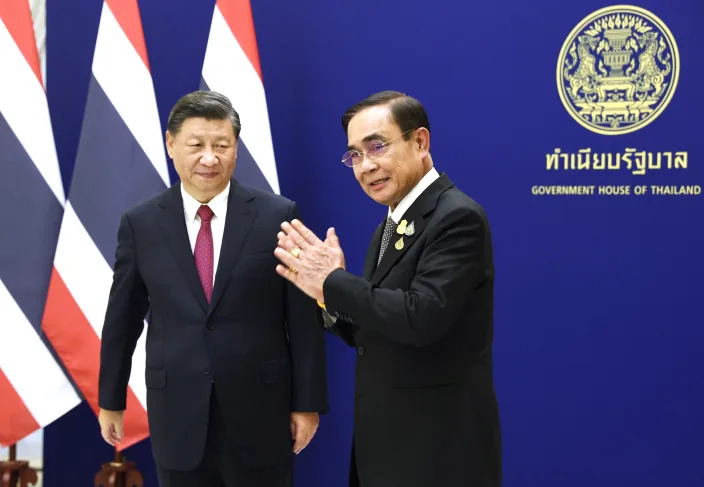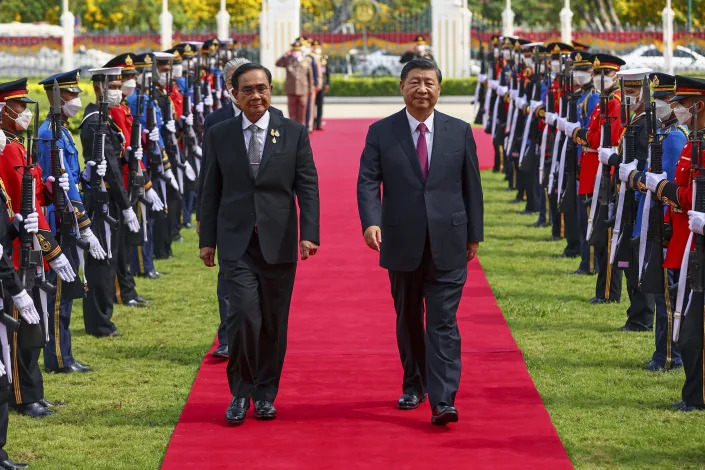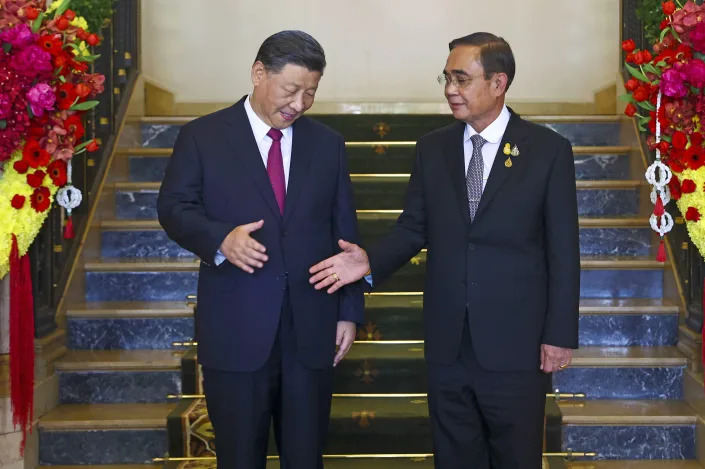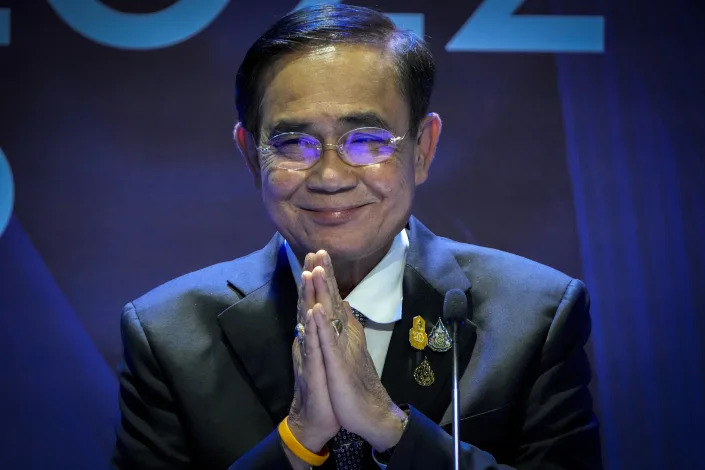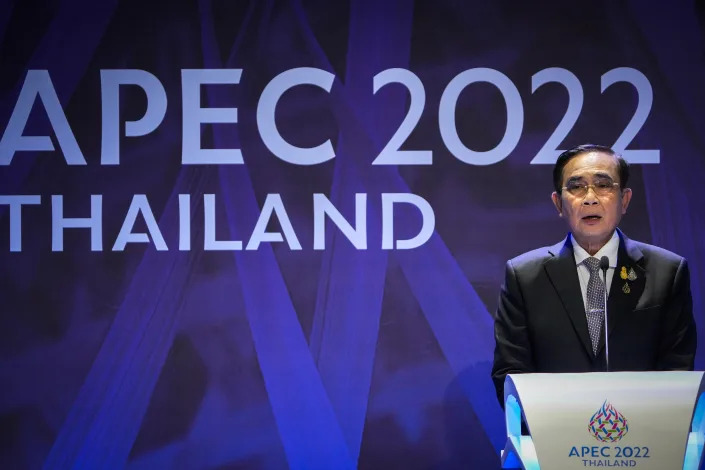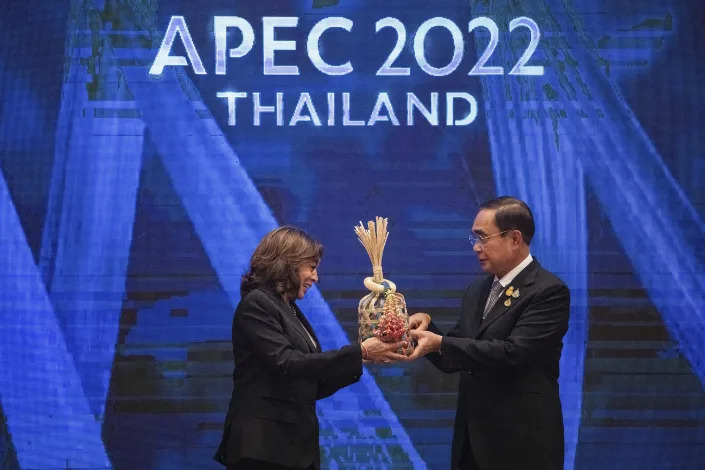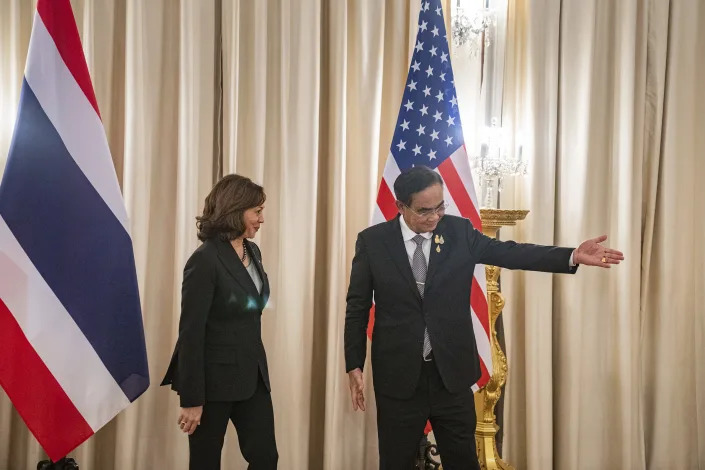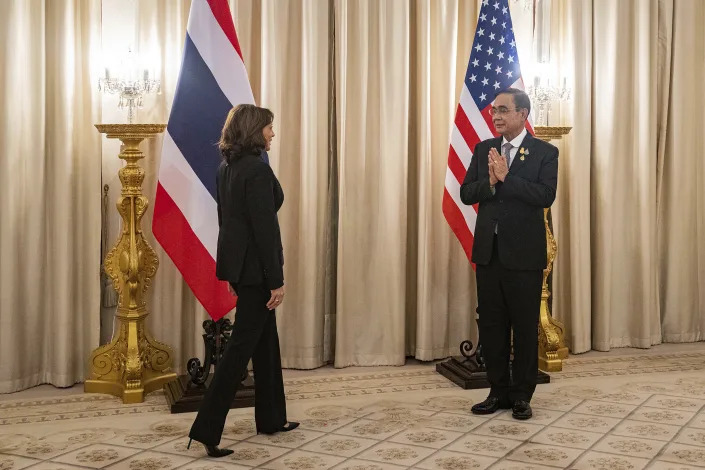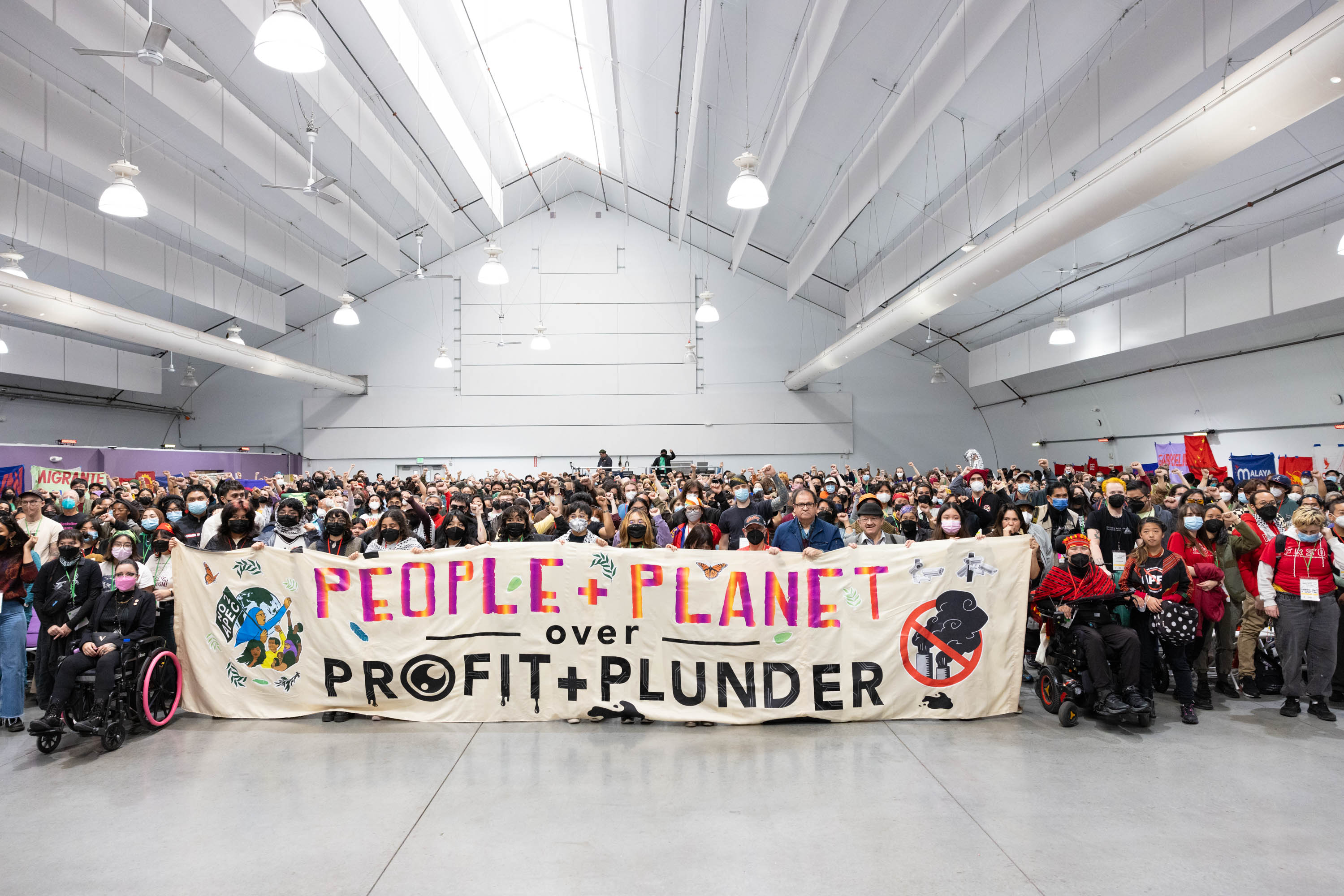
Thousands of protesters were expected to gather Sunday in downtown San Francisco to call for a stop to this week's APEC gathering.
The No to APEC Coalition—an umbrella group of over 150 grassroots organizations—has criticized the Asia-Pacific Economic Cooperation forum for pushing “free trade” to harm indigenous people around the world.
Coalition protesters planned to gather at noon at Harry Bridges Plaza on the Embarcadero, before marching about a mile to Moscone Center in the South of Market neighborhood.
In a statement late last week, representatives from the No to APEC Coalition said protesters would peacefully speak out about their opposition to the gathering, as well as the Indo-Pacific Economic Framework—the Biden administration's road map for a new Asia-Pacific economic strategy—and climate initiatives they perceive as less than transparent.
“Taking our demands for a clean and vibrant future through the streets directly to the militarized center of negotiations is representative of the power of our popular resistance," Nik Evasco, an organizer with the NO2APEC Climate Bloc, said in a statement Friday. "We march with our heads held high, across generations, across movements and inclusive of the many voices that are purposefully shut out of free trade summits."
APEC, launched more than 30 years ago, is a grouping of 21 member economies, including the U.S., China, Japan, South Korea and Australia, aimed at promoting free trade throughout the Asia Pacific region. It hosts multiple meetings in a given host nation throughout the year, culminating in "Leaders Week," which is taking place in San Francisco this week.
Alongside Leaders Week is the APEC CEO Summit, which will bring heads of state together with business executives like X owner Elon Musk and Salesforce boss Marc Benioff.
Evasco criticized San Francisco for creating "a safe space for the biggest human rights abusers of our era to meet and carve out the world to make profits for themselves and their corporate enablers."
Protesters with No to APEC's Palestine Bloc, as well as others attending an "All Out for Palestine" prayer vigil, were expected to gather at the plaza at 11 a.m. and 1 p.m., respectively.
The U.S. Secret Service is the lead agency for security for the APEC events. Restrictions on pedestrian and vehicle traffic will be in place around the Moscone Center, transit lines will be rerouted or closed, and air traffic over San Francisco will be limited.
President Joe Biden will be staying in Nob Hill, and additional security measures will be in place there. Part of the Embarcadero will be closed Wednesday for event that will bring world leaders to the Exploratorium.
More than 1,000 outside law enforcement officers are coming to San Francisco to deal with any potential disruption.
While activists gear up to get their message heard, San Francisco is doing everything it can to facilitate a successful APEC, including ramping up security, rerouting traffic and broadcasting a marketing campaign to promote the event. Leaders and wealthy sponsors of the summit are also hosting fancy events and celebrations across the city.
A demonstrator holds a sign during a protest against the Asia-Pacific Economic Cooperation APEC summit venue, Friday, Nov. 18, 2022, in Bangkok, Thailand. Activists protesting environmental abuses, poor working conditions and the Israel-Hamas war are among those planning to march in downtown San Francisco Sunday to protest a global trade summit.
Police remove protesters trying to march to the Asia-Pacific Economic Cooperation APEC summit venue, Friday, Nov. 18, 2022, in Bangkok, Thailand. Activists protesting environmental abuses, poor working conditions and the Israel-Hamas war are among those planning to march in downtown San Francisco Sunday to protest a global trade summit.
Demonstrators condemn the police’s use of force to disperse a protest against the Asia-Pacific Economic Cooperation APEC summit in a main shopping district, Saturday, Nov. 19, 2022, in Bangkok, Thailand. Activists protesting environmental abuses, poor working conditions and the Israel-Hamas war are among those planning to march in downtown San Francisco Sunday to protest a global trade summit.
BY JANIE HAR
Updated 9:23 AM MST, November 12, 2023Share
SAN FRANCISCO (AP) — Activists protesting corporate profits, environmental abuses, poor working conditions and the Israel-Hamas war are among those planning to march in downtown San Francisco on Sunday, united in their opposition to a global trade summit that will draw President Joe Biden and leaders from nearly two dozen countries.
Protests are expected throughout this week’s Asia-Pacific Economic Cooperation leaders’ conference, which could draw more than 20,000 attendees, including hundreds of international journalists. The No to APEC coalition, made up of more than 100 grassroots groups, says trade deals struck at summits such as APEC exploit workers and their families.
It’s unlikely world leaders will even glimpse the protests given the strict security zones accessible only to attendees at the Moscone Center conference hall and other summit sites. But Suzanne Ali, an organizer for the Palestinian Youth Movement, says the U.S. government needs to be held to account for supplying weapons to Israel in its war against Hamas.
“Even if they cannot see us, as we’re mobilizing and marching together, they will know that we’re out there,” she said.
San Francisco has a long tradition of loud and vigorous protests, as do trade talks. In 1999, tens of thousands of protesters took to the streets of Seattle during a World Trade Organization conference. Protesters succeeded in delaying the start of the conference and captured global attention as overwhelmed police fired tear gas and plastic bullets, and arrested hundreds of people.
Chile withdrew as APEC host in 2019 due to mass protests. Last year, when Thailand hosted the summit in Bangkok, pro-democracy protesters challenged the legitimacy of the Thai prime minister, prompting police to fire at the crowd with rubber bullets that injured several protesters and a Reuters journalist.
San Francisco Police Department Chief Bill Scott said he expects several protests a day, although it’s uncertain how many will materialize. He warned against criminal behavior.
“People are welcome to exercise their constitutional rights in San Francisco, but we will not tolerate people committing acts of violence, or property destruction or any other crime,” Scott said. “We will make arrests when necessary.”
APEC, a regional economic forum, was established in 1989 and has 21 member countries, including the world’s two largest economic superpowers China and U.S, as well as Mexico, Brazil and the Philippines. An accompanying CEO summit is scheduled for this week, which critics also plan to protest Wednesday.
Headlining the summit is a highly anticipated meeting between Biden and Chinese President Xi Jinping, who rarely — if at all — encounters protesters on home soil.
China has heavy security ahead of any events within its borders to ensure no protests occur. It also steps up border checks at city limits and at transit points such as railway stations and airports. Human rights activists based in China will often receive visits or phone calls from police ahead of important events as reminders to not demonstrate.
Rory McVeigh, sociology professor and director of the Center for the Study of Social Movements at University of Notre Dame, says politicians use protests to gauge public opinion, and media attention helps.
“Probably a lot of protests just don’t make much difference, but occasionally they do and occasionally they can make a huge difference,” he said.
The United Vietnamese American Community of Northern California plans to protest Xi and Vietnam President Vo Van Thuong. The International Coalition for Human Rights in the Philippines will be rallying for the rights of indigenous Filipinos and protesting the presence of President Bongbong Marcos, the son of dictator Ferdinand Marcos.
Protesters are disappointed that San Francisco, with its rich history of standing up for the working class, would host CEOs of companies and leaders of countries that they say do great harm.
“It’s silly, from the mayor to the governor to the president, they want to say this is a great idea to have all these people who have been profiting off the intersecting crises of our time,” said Nik Evasco, a climate activist. “It’s just sickening.”
___
Associated Press writer Huizhong Wu in Bangkok contributed to this report.
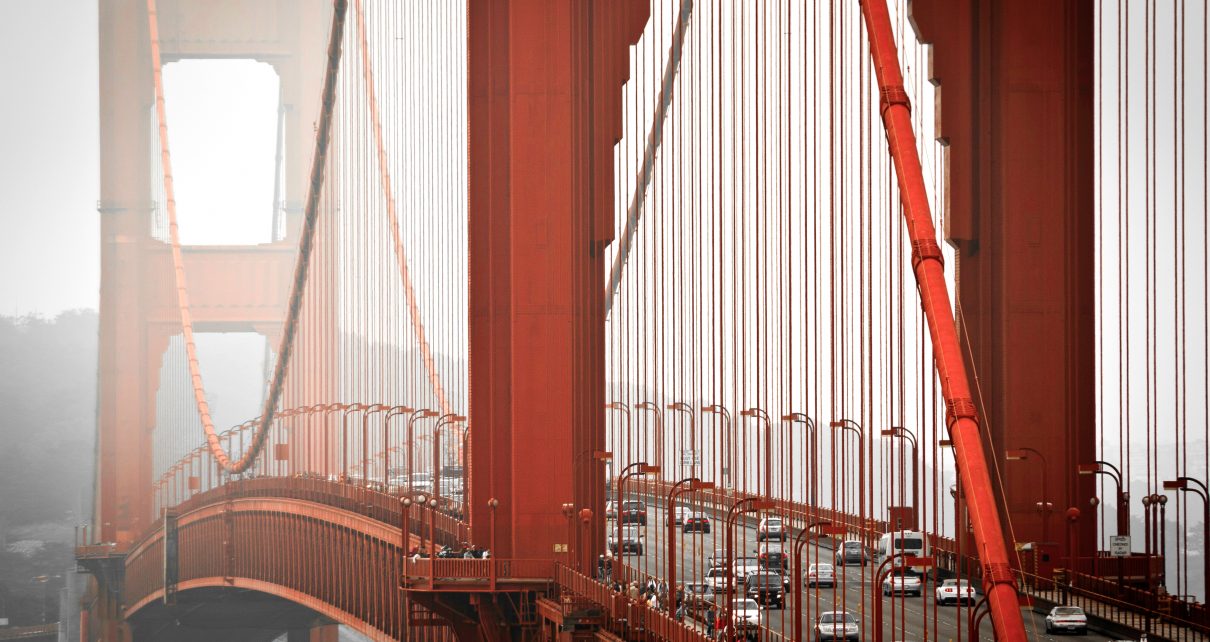
San Francisco's Golden Gate bridge from above, misty weather.
‘These Democrats are essentially locking the dignitaries up to keep them from discovering just how bad and dangerous the town is – and they say that border fencing doesn’t work’
By Katy Grimes, November 12, 2023
This surely must be from the “you can’t make this stuff up” department: San Francisco is building walls around the area where the the Asian-Pacific Economic Cooperation (APEC) Summit is going in – for security.
“The sidewalks in the APEC zone, including sticky and urine-perfumed Van Ness Avenue, have been silver polished on the Eve of APEC,” Sebastian, a San Francisco resident and friend to the Globe told us. “Walking along Van Ness Ave today was like walking along twice-a-day-mobbed Orchard Road in Singapore.”
Oh the injustice of the walls… how inhumane… walls are ineffective… the wall is bigoted… the wall is creating an humanitarian crisis… the wall is destroying ecosystems… the wall is unethical…
We’ve watched all of the insincere hand wringing and heard all of the reasons walls don’t work – until Democrats need a wall to keep the riff-raff out.
Sebastian takes photos daily of his city – this is what it usually looks like:
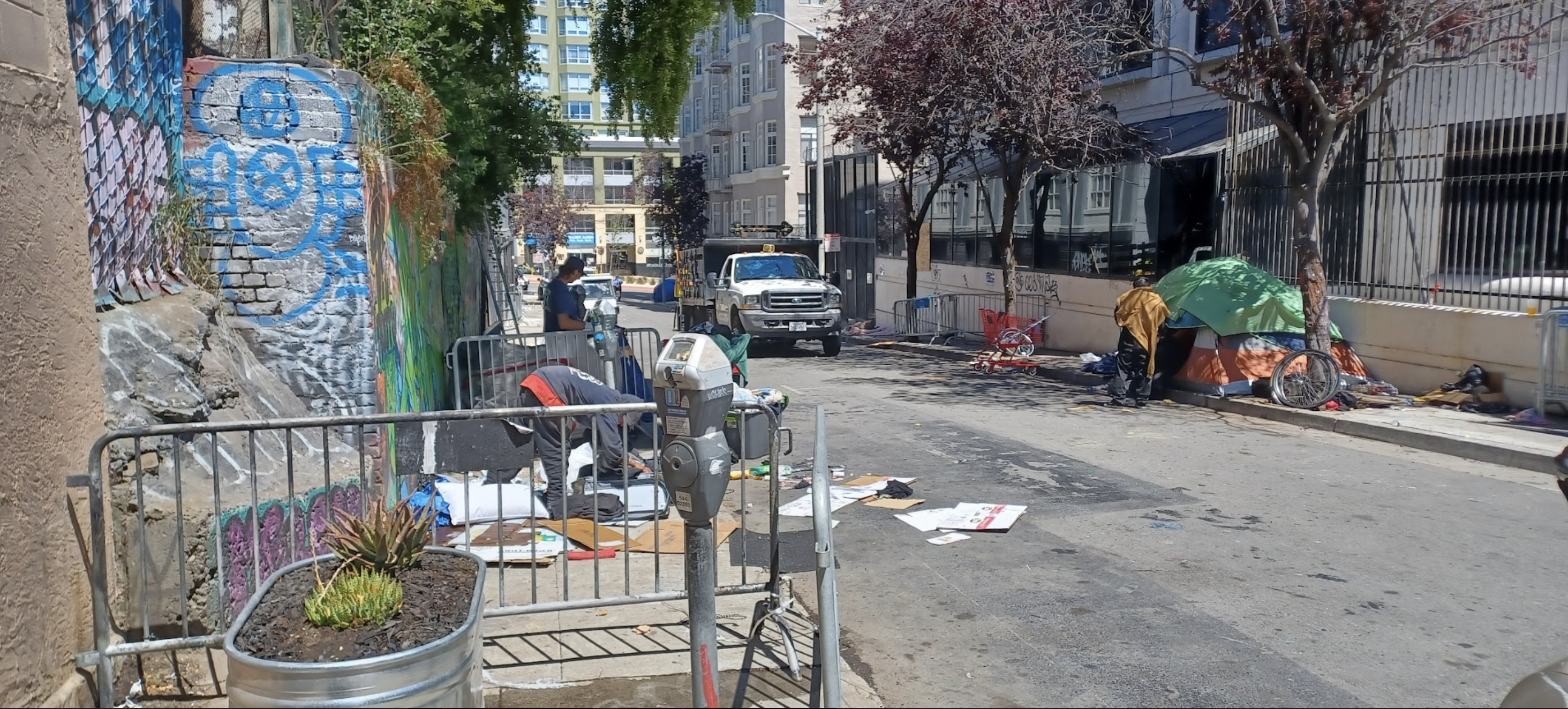
The City of San Francisco even posted rules for residents on its website: Prepare for APEC if you live in a security zone.
“They are essentially locking the dignitaries up to keep them from discovering just how bad and dangerous the town is. And these are the Democrats who say that border fencing doesn’t work,” he said. “The same leftists that claim that fences and walls do not work and are inhumane are the same leftists that live behind fences and walls.”
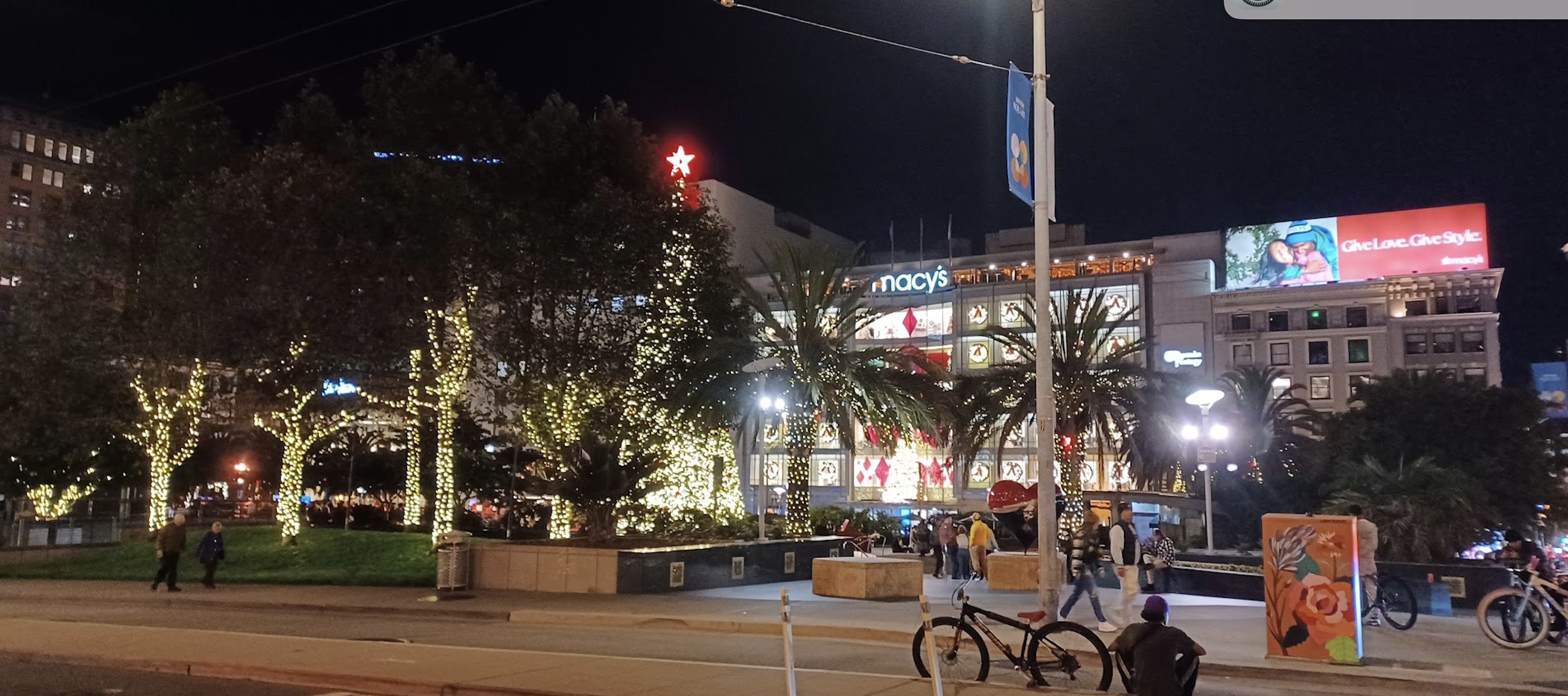
“Now these same leftists are erecting fencing and walls to keep law abiding people out of an area; but somehow don’t claim that these fences and walls don’t work or are inhumane.”
Fences have been installed around the Fairmont Hotel where President Joe Biden will stay during APEC
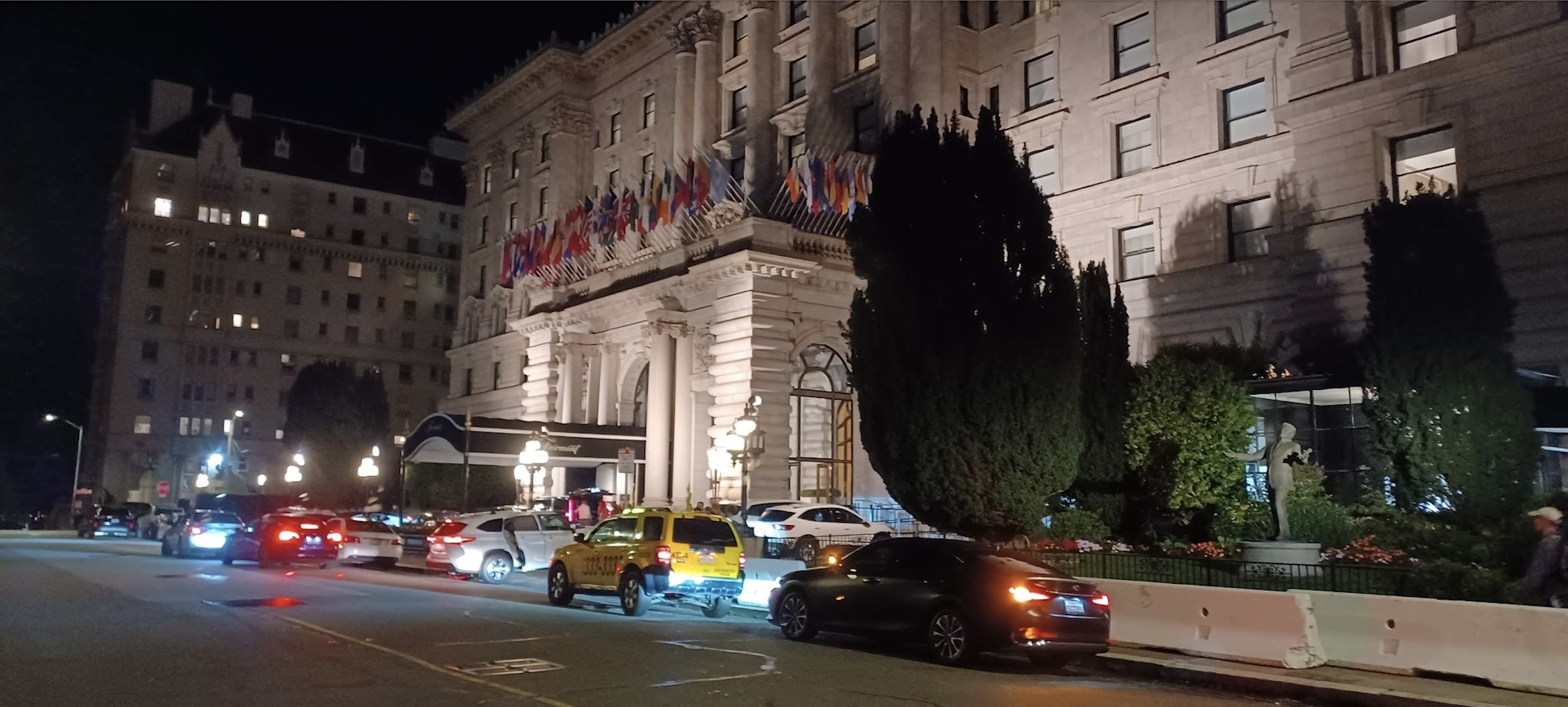
“My Democrat and Republican friends who live in the Brocklebank Apartments featured in the movie Vertigo and my late SF Chronicle columnist, Herb Caen lived which is next to the Fairmont Hotel, are upset about the fencing as they have to go through security checks from Nov.14-18,” Sebastian said. “They weren’t informed about the ‘walls’ ahead of time.”
Preparation for APEC is hardly being executed with military precision if residents were not prepared in advance
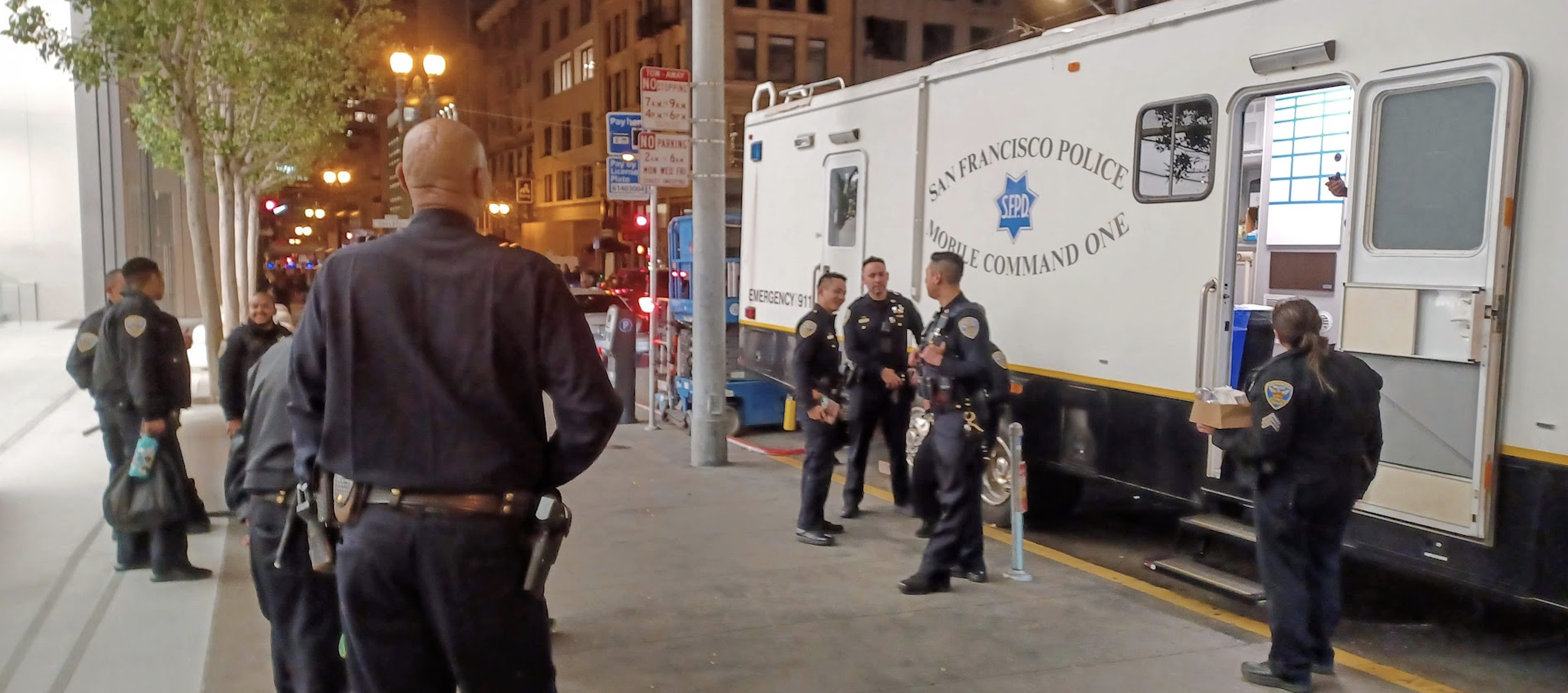
The San Francisco Standard reports the logistical details:
Where exactly is the main security perimeter for the event, and how long will it be in place?
The main venue is the Moscone Center in the South of Market neighborhood.
From 10 p.m. Nov. 14 to Nov. 18, local traffic into the security perimeter—for those who live or work in the area bounded by Second, Market, Fifth and Harrison streets—will be allowed only through specific paths after a security sweep and inspection.
Pedestrians and bicycles not heading into the security perimeter will be routed around the area. Vehicles that do not need to enter the perimeter for residential or business purposes will not be allowed in.
Most vehicles traveling south from Nob Hill and Chinatown will be rerouted to either Mason Street to the west or Bush Street to First Street to the east. Drivers traveling south of Market Street from the Embarcadero will be pushed north at Fremont Street or south at First Street to avoid the security zone. Southwest of the perimeter, vehicles will be routed onto Sixth Street for north-south travel and Harrison Street for east-west travel.
Be wary of driving and parking in San Francisco: “On-street parking will be barred within all security zones. Emergency no parking signs will go up around the city. Vehicles that are parked in violation of emergency no parking signs will be ticketed and towed.” Parking garages will also be closed.
So San Francisco has essentially locked down the city for APEC – businesses and residents can just shut up.
San Francisco officials have even announced the Muni transit system will be blowing past “exclusion zones:”
ATTN: Muni is no longer able to serve stops in exclusion zones. Muni service is passing blocked stops. For safety, riders should not stand in the street as Muni buses will not stop. Conditions are changing rapidly due to street impacts.
They’ve even arranged to shut down some freeway access:
On the Bay Bridge, the rightmost lane of I-80 westbound and the leftmost lane of I-80 eastbound will shut down from Nov. 14 at 5 a.m.
The I-80 eastbound off-ramp at Fourth Street will be closed from Nov. 15 to Nov. 17 from 5 a.m. to 9 p.m. daily. The last eastbound San Francisco exit before the Bay Bridge will be at Seventh Street instead of Fourth Street. The I-80 westbound off-ramp at Fifth Street will be closed from Nov. 15 to Nov. 17 from 5 a.m. to 9 p.m. daily. Drivers planning to get on the eastbound freeway near the Moscone Center should use the Eight Street on-ramp. Drivers planning to get off the freeway should use the Fremont Street off-ramp.
Additionally, the northbound U.S. 101 Dana Bowers Vista Point off-ramp north of the Golden Gate Bridge will be closed from Nov. 14 to Nov. 18.
Next week may be a good time to take a vacation – out of California.
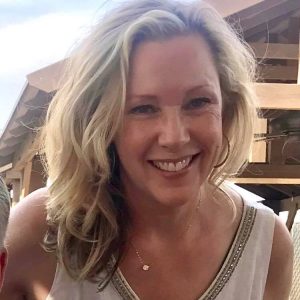
Katy Grimes, the Editor in Chief of the California Globe, is a long-time Investigative Journalist covering the California State Capitol, and the co-author of California's War Against Donald Trump: Who Wins? Who Loses?
